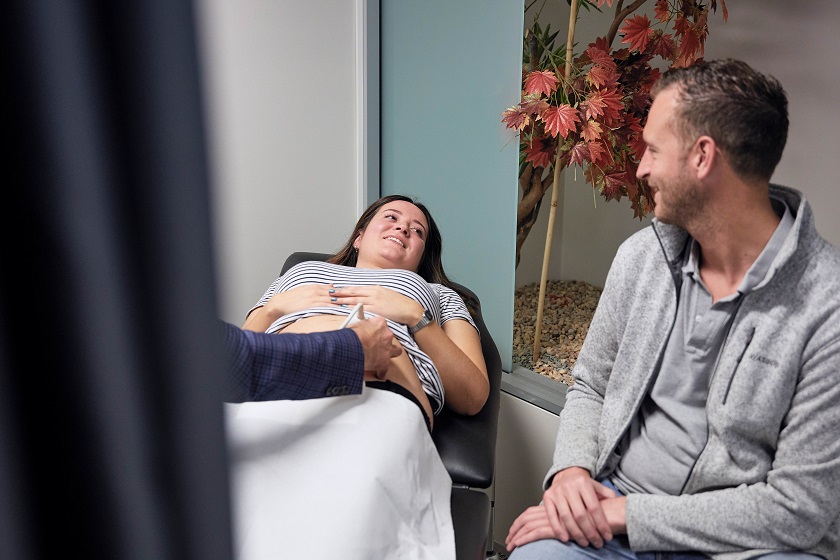As a part of your antenatal care will be offered numerous appointments, ultrasounds, blood tests and education sessions.
Our aim is to provide women with expert monitoring for fetal growth, expert maternal health care, screening and education.
Each obstetrician approaches pregnancy individually which can mean that the exact test type and timing these tests are ordered may vary.
However, this guide can give you a simple overview of the expected appointments and tests you may experience throughout your pregnancy to help you feel more prepared for the amazing journey you are now on.
Early pregnancy six to 10 weeks
Prior to booking an appointment with your chosen obstetrician, you need to have an appointment with your GP.
Occasionally your GP will provide you with a pathology referral form for blood tests to check pregnancy hormone levels and a referral for a confirmation of pregnancy and dating ultrasound.
This is not always the case as this can also be arranged by your obstetrician at your booking appointment. The purpose of the blood test and the ultrasound is to ensure that the pregnancy is progressing as expected and that your estimated due date as calculated by your last menstrual cycle matches the due date determined by your baby’s size on ultrasound.
Your GP will also discuss which obstetrician you would like to be referred to and provide you with a referral so you can then book your first antenatal appointment.
At the first booking appointment with your obstetrician, they will discuss your early pregnancy care such as nutrition, weight management, exercising during pregnancy, fetal development and the results/booking of your blood tests and dating ultrasound.
Routine antenatal appointment guide
During the first 28 weeks of your pregnancy, you will routinely see your obstetrician and/or midwife once a month.
Between 28 to 36 weeks your appointment will become more frequent to fortnightly.
From 36 weeks, routinely you will then have an appointment every week until your baby is born.
Routine blood test guide
Early pregnancy/antenatal screening bloods
Pathology request form issued by your GP following a positive pregnancy urine test.
At 10 weeks
You will have your first trimester screening test for chromosomal abnormalities. A referral will be given by either your GP or obstetrician.
At 28 weeks
Glucose Tolerance Test - screening for gestational diabetes.
34 to 36 weeks
If you have had low iron during pregnancy then you may have a repeat blood test for your Iron levels during this gestation.
Routine formal ultrasound guide
Six to 10 weeks
Confirmation of pregnancy and dating ultrasound. The ultrasound request form will be given to you by your GP or obstetrician (this can be performed in your obstetricians rooms as part of your appointment).
12 weeks
One option available during the antenatal period is the first trimester screen ultrasound. This combines the results from the ten week blood test with your ultrasound which will determine your pregnancy as either high risk or low risk for chromosomal abnormalities.
Your obstetrician will be able to discuss other screening options available to you during your pregnancy.
19 weeks
Anatomy ultrasound to ensure that your baby is developing normally and all major organs are functioning as expected. You may be able to find out the sex of your baby at this ultrasound if you wish to do so.








